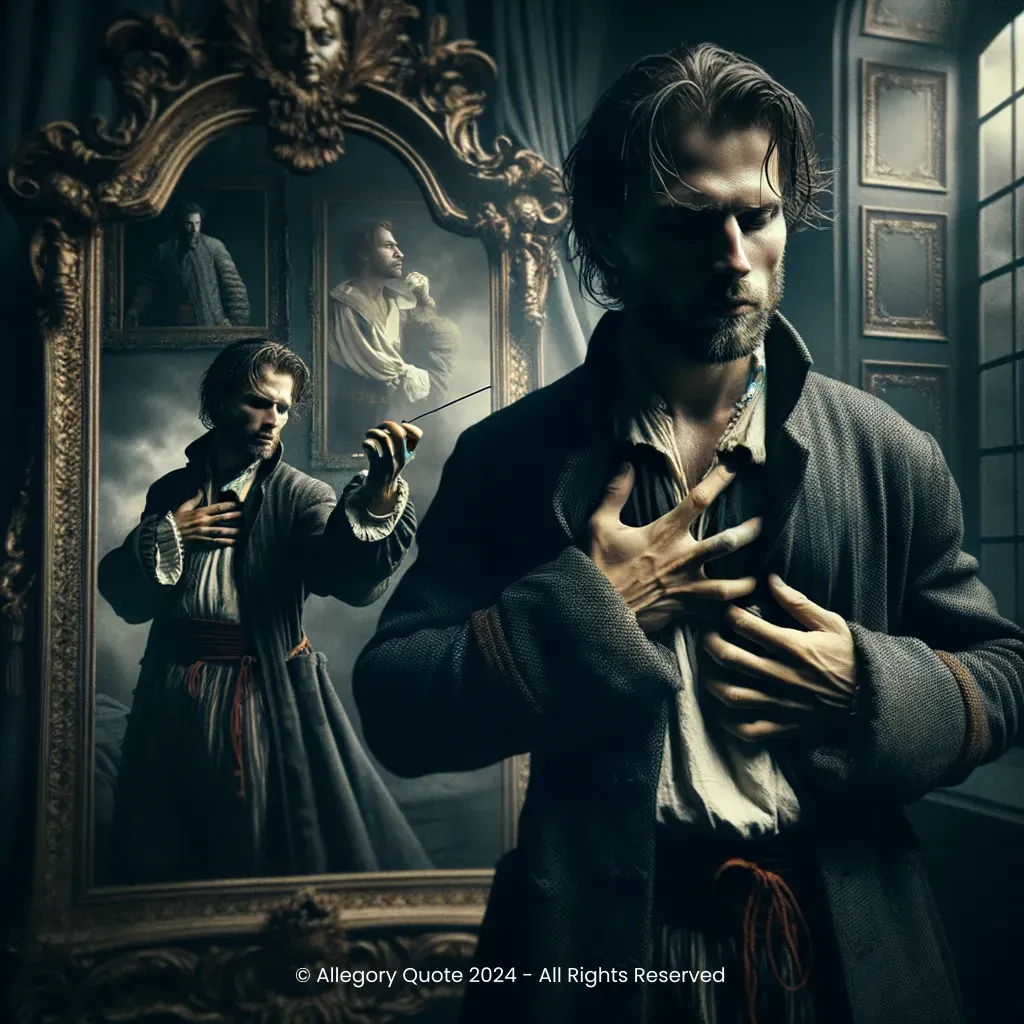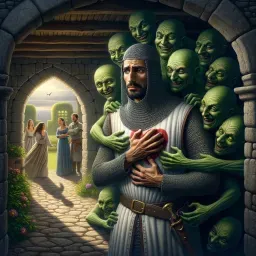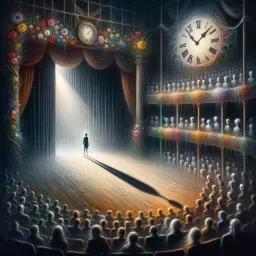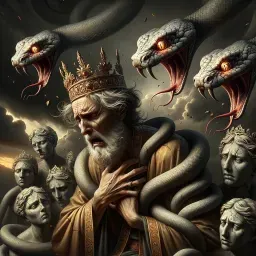O, what a rogue and peasant slave am I!

0
0
0
0
- Meaning
- This phrase is an expression of Hamlet's self-criticism and intense guilt. In this soliloquy, Hamlet berates himself for his inaction and compares his feeble response to the passionate display of an actor who weeps for the fictional fate of Hecuba. Hamlet feels like a "rogue" (a trickster) and a "peasant slave" (a lowly, subservient person) because while the actor can summon such strong emotions over a story, Hamlet himself cannot muster the same passion to avenge his father's murder. This underscores a theme of indecision and self-doubt that pervades the play.
- Allegory
- The image elements emphasize Hamlet’s internal conflict and self-recrimination. The dimly lit room and dramatic shadows represent his troubled mind. The grand mirror shows Hamlet in peasant clothes to reflect his derogatory self-view. The luxurious yet darkened castle background hints at the grandeur and weight of his royal duty, while the half-gloved hand symbolizes his hesitation and inner turmoil. The actor performing in the background contrasts with Hamlet’s indecision, highlighting the intensity and sincerity Hamlet feels he lacks. This setup unpacks the conceptual heaviness of the phrase, illustrating Hamlet’s psyche and the depth of his predicament.
- Applicability
- The self-reflection and critical gaze Hamlet casts upon himself can be applied to personal life as a reminder to confront our shortcomings and to rekindle the courage to act upon our convictions. It speaks to the universal human experience of feeling inadequate and challenges us to move beyond self-rebuke towards meaningful action.
- Impact
- The impact of this phrase, and "Hamlet" as a whole, cannot be understated. It has inspired countless interpretations, adaptations, and critical analyses. This soliloquy, where the phrase appears, highlights Hamlet's existential angst and has become emblematic of Shakespearean tragedy. It has influenced the portrayal of complex psychological characters in literature and theater, emphasizing the depth of character introspection.
- Historical Context
- "Hamlet" was written around the year 1600 during the English Renaissance, a period of profound exploration in arts, science, and humanism. The emotional turbulence and introspection reflected in this phrase are characteristic of the era's literature, which often delved deeply into the complexities of human nature and personal conscience.
- Criticisms
- Some critiques highlight the potential for over-analyzing Hamlet's introspection, leading to interpretations that may overshadow the broader narrative and thematic elements of the play. Others may argue that the self-criticism seen in Hamlet could propagate a negative self-concept if misapplied without context.
- Variations
- Due to its profound nature, this phrase has many interpretations. For example, in Japanese culture, a similar feeling of inadequacy might be captured by the concept of "wabi-sabi," which appreciates beauty in imperfection and transience, suggesting a different outlook on self-evaluation and acceptance.
-

The empty vessel makes the loudest sound.
-

O, beware, my lord, of jealousy; It is the green-ey'd monster which doth mock the meat it feeds on.
-

False face must hide what the false heart doth know.
-

Rich gifts wax poor when givers prove unkind.
-

Life's but a walking shadow, a poor player that struts and frets his hour upon the stage and then is heard no more.
-

There was never yet philosopher that could endure the toothache patiently.
-

How sharper than a serpent's tooth it is to have a thankless child!
-

I will praise any man that will praise me.
-

Words, words, mere words, no matter from the heart.
-

The smallest worm will turn, being trodden on.
No Comments